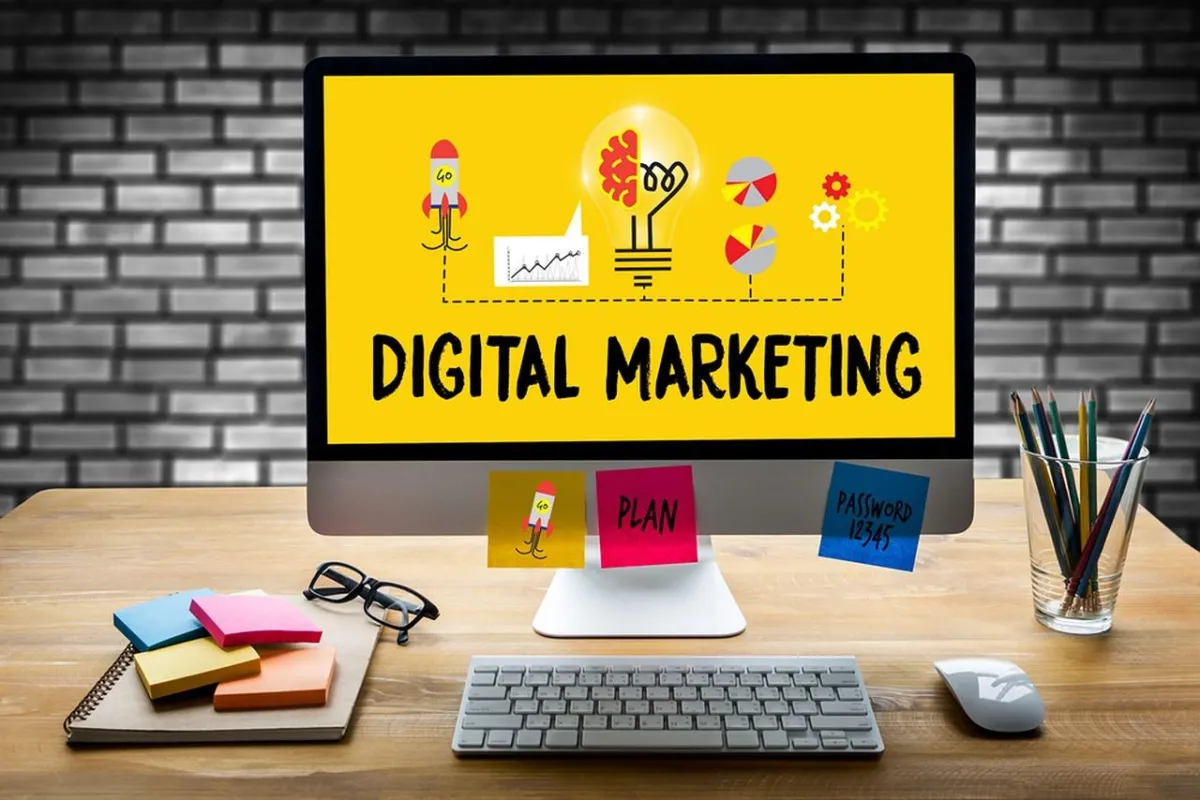
Curabitur Interdu
Finibuselit Viverra Finib
Jane Doe | April 12, 2022 | 4 Comments
Lorem ipsum dolor sit amet, consectetur adipiscing elit. Vestibulum quis nibh sed lorem eleifend rutrum id et leo. Pellentesque vel fermentum elit, et pulvinar diam. Suspendisse lacus nisl, rutrum ac enim vitae, euismod maximus erat. Praesent varius sollicitudin sem, consectetur maximus turpis pulvinar non. Suspendisse potenti. Etiam fringilla nulla sed pellentesque eleifend. Fusce elit nunc, tempor vel rhoncus at, lobortis et justo. Curabitur interdum augue finibus elit viverra finibus. Suspendisse potenti. Pellentesque habitant morbi tristique senectus et netus et malesuada fames ac turpis egestas. Vivamus sagittis tempor justo eget laoreet. Proin fringilla urna nec arcu suscipit interdum. Etiam vel felis lectus. Vivamus vitae luctus augue. Duis id laoreet libero. Nunc lobortis malesuada fermentum. Suspendisse malesuada congue hendrerit. Etiam vulputate sed nunc eu volutpat. Vivamus ut diam nibh.
Read our latest blogs

Consectetur Adipiscing
Duis cursus laoreet leo sit amet ultrices. Vivamus feugiat neque tellus,

Consectetur Adipiscing
Duis cursus laoreet leo sit amet ultrices. Vivamus feugiat neque tellus,

Consectetur Adipiscing
Duis cursus laoreet leo sit amet ultrices. Vivamus feugiat neque tellus,

Consectetur Adipiscing
Duis cursus laoreet leo sit amet ultrices. Vivamus feugiat neque tellus,

Consectetur Adipiscing
Duis cursus laoreet leo sit amet ultrices. Vivamus feugiat neque tellus,

Consectetur Adipiscing
Duis cursus laoreet leo sit amet ultrices. Vivamus feugiat neque tellus,
Blog

What is digital marketing agency?
What is Digital marketing agency?
Digital marketing agency is a online band that helps the big business to sponsor their product or services online through social media, website, emails, SEO and advertising to achieve their goal audience.
Strategies that Digital Marketing Agency use for Business:
1. Define Clear Goals: Before implementing any strategy, it's essential to define clear and asses sable goals. Whether it's increasing brand awareness, driving sales, or improving customer engagement, having specific objectives helps in devising effective strategies.
2. Know Your Target Audience: Understanding your target audience is crucial for successful marketing. This information helps in tailoring marketing messages and offers that resonate with your audience.
3. Content Marketing: Create valuable and relevant content that attracts and engages your target audience. Content can include blog posts, videos, info graphics, podcasts, and more. Consistent and high-quality content builds brand authority, drives organic traffic, and fosters trust with your audience.
4. Search Engine Optimization (SEO): Optimize your website and content to rank higher in search engine results pages (SERPs). This involves keyword research, on-page optimization, building back links, and providing a great user experience.
5. Social Media Marketing: Utilize social media platforms to connect with your audience, build relationships, and promote your products or services. Develop a social media strategy that includes content creation, community engagement, and paid advertising to reach a wider audience and drive website traffic.
6. Email Marketing: Build an email list of subscribers and nurture relationships through targeted email campaigns. Personalize content based on subscriber preferences and behaviors to increase open rates, click-through rates, and conversions.
7. Paid Advertising: Invest in paid advertising channels such as Google Ads, Facebook Ads, and sponsored content to reach specific target audiences and drive immediate results. Set clear objectives, define target demographics, and optimize campaigns regularly to maximize return on investment (ROI).
8. Influence Marketing: Collaborate with influences in your industry or niche to reach their followers and tap into their credibility and influence. Identify influences whose audience aligns with your target market and create authentic partnerships to promote your brand or products.
9. Analytics and Data Analysis: Monitor and analyze key performance indicators (KPIs) to measure the effectiveness of your marketing efforts. Use tools like Google Analytics, social media analytics, and customer relationship management (CRM) software to track metrics, gain insights, and make data-driven decisions to optimize strategies.
10. Customer Experience Optimization: Focus on delivering exceptional customer experiences across all touch points, from initial awareness to post-purchase support. Provide personalized interactions, streamline processes, and listen to customer feedback to build loyalty, drive repeat business, and generate positive word-of-mouth.
By incorporating these strategies into your business and digital marketing efforts, you can increase brand visibility, attract and retain customers, and ultimately drive growth and profitability.

Some important information for digital marketing businesses:
Running a successful digital marketing business requires a comprehensive understanding of various aspects of digital marketing, including strategy, tools, trends, and best practices. Here's a breakdown of important information for digital marketing businesses:
Digital Marketing Channels:
Search Engine Marketing (SEM): Paid advertising on search engines like Google through platforms like Google Ads.
Social Media Marketing (SMM): Utilizing social media platforms like Facebook, Instagram, Twitter, LinkedIn, etc., to promote products or services..
Email Marketing: Sending targeted emails to leads and customers to promote products, services, or events.
Target Audience Identification:
Understanding the target audience's demographics, interests, behaviors, and pain points is crucial for crafting effective marketing strategies.
Data Analytics:
Utilizing tools like Google Analytics, social media analytics platforms, and CRM systems to gather insights into audience behavior and campaign performance.
Analyzing data to optimize marketing strategies, identify trends, and make data-driven decisions.
Content Creation:
Creating high-quality content tailored to the preferences of the target audience across various digital channels.
Content formats may include blog posts, articles, videos, info graphics, podcasts, and more.
Marketing Automation:
Implementing marketing automation tools to streamline processes, nurture leads, and personalize interactions with customers.
Automation can include email drip campaigns, lead scoring, and workflow automation.
Mobile Marketing:
Optimizing marketing strategies for mobile devices due to the increasing use of smart phones and tablets.
This includes mobile-friendly website design, mobile apps, and SMS marketing.
Customer Relationship Management (CRM):
Using CRM software to manage and analyze customer interactions throughout the customer lifecycle.
CRM systems help track leads, manage contacts, and improve customer retention through personalized communication.
Compliance and Privacy:
Adhering to data privacy regulations such as GDPR (General Data Protection Regulation) and CCPA (California Consumer Privacy Act) to protect consumer data and avoid legal issues.
Continuous Learning and Adaptation:
Staying updated with the latest trends, technologies, and algorithm changes in digital marketing.
Investing in ongoing training and professional development for yourself and your team.
Client Communication and Relationship Management:
Building strong relationships with clients through clear communication, transparency, and delivering results.
Regularly reporting on campaign performance and discussing strategies for improvement.
Budgeting and ROI Measurement:
Allocating budgets effectively across different digital marketing channels based on their performance and ROI.
Monitoring and analyzing the return on investment (ROI) of marketing campaigns to ensure optimal resource allocation.
Networking and Collaboration:
Networking with other professionals in the industry, attending conferences, and participating in online communities to exchange knowledge and opportunities.
Collaborating with other businesses or agencies to offer complementary services and expand your client base.

Digital marketing agency can significantly impact your business growth
Here's a step-by-step guide on how to effectively leverage digital marketing services from an agency to drive growth:
Assess Your Needs:
Identify your business goals and challenges. Determine which areas of your marketing strategy require improvement or support.
Consider which digital marketing channels (e.g., SEO, SEM, social media, content marketing) align with your objectives and target audience.
Research and Select an Agency:
Conduct thorough research to find reputable digital marketing agencies that specialize in your industry or have a proven track record of success.
Evaluate agencies based on their portfolio, client testimonials, expertise, certifications, and approach to client communication.
Request proposals from multiple agencies and compare their strategies, pricing, and proposed outcomes.
Define Clear Objectives:
Communicate your business objectives, target audience, budget constraints, and timelines clearly to the chosen agency.
Set specific, measurable, achievable, relevant, and time-bound (SMART) goals to track the success of your digital marketing campaigns.
Collaborate on Strategy Development:
Work closely with the agency to develop a comprehensive digital marketing strategy tailored to your business needs and objectives.
Discuss target audience segmentation, messaging, content strategy, channel selection, and budget allocation.
Ensure the strategy aligns with your brand identity, values, and long-term vision.
Execute and Monitor Campaigns:
Once the strategy is finalized, the agency will begin executing digital marketing campaigns across selected channels.
Regularly monitor campaign performance using analytics tools and reports provided by the agency.
Stay in close communication with the agency to address any issues, make adjustments, and capitalize on emerging opportunities.
Optimize Based on Data Insights:
Use data analytics to analyze the effectiveness of digital marketing campaigns in achieving your business goals.
Identify trends, strengths, weaknesses, and areas for improvement to optimize future campaigns.
Collaborate with the agency to implement data-driven adjustments and refinements to maximize ROI.
Regular Communication and Reporting:
Schedule regular meetings with the agency to review campaign performance, discuss strategies, and address any concerns.
Request detailed reports that provide insights into key performance metrics, conversions, ROI, and progress toward your objectives.
Use these insights to guide strategic decisions and ensure alignment between your business goals and the agency's efforts.
Continuous Learning and Adaptation:
Stay updated on industry trends, algorithm changes, and emerging technologies to remain competitive in the digital landscape.
Encourage open communication and collaboration with the agency to explore new opportunities and tactics for growth.
By following these steps and fostering a collaborative relationship with your chosen digital marketing agency, you can harness the power of digital marketing to drive significant business growth and achieve your objectives.
Several potential drawbacks
While digital marketing agencies can provide valuable expertise and resources to enhance your marketing efforts, there are several potential drawbacks that people may encounter when working with them:
Costs:
Digital marketing agencies often charge fees for their services, which can be costly, particularly for small businesses with limited budgets.
Additionally, unexpected expenses may arise if campaigns require additional resources or revisions.
Lack of Control:
Outsourcing marketing to an agency means relinquishing some control over the messaging, creative direction, and timing of campaigns.
Some businesses may feel uncomfortable entrusting their brand's image and reputation to an external party.
Communication Challenges:
Miscommunication or a lack of clear communication between the business and the agency can lead to misunderstandings, delays, and sub optimal results.
Differences in communication styles, time zones, and language barriers may further exacerbate these challenges.
Cookie-Cutter Solutions:
Some digital marketing agencies may offer one-size-fits-all solutions or use generic templates for campaigns, rather than tailoring strategies to meet the unique needs and goals of each client.
This approach can result in campaigns that lack creativity, fail to resonate with the target audience, or overlook key opportunities for growth.
Dependency on External Expertise:
Relying solely on a digital marketing agency for all marketing activities can create a dependency on external expertise, limiting the business's ability to develop in-house marketing capabilities.
Businesses may struggle to adapt to changing market conditions or pivot strategies quickly without the agency's support.
Conflicts of Interest:
Digital marketing agencies often work with multiple clients simultaneously, potentially leading to conflicts of interest if competing businesses are targeting similar audiences or industries.
Confidentiality agreements can mitigate this risk, but businesses should carefully vet agencies to ensure their interests are prioritized.
Performance Guarantees:
While agencies may promise to deliver specific results or metrics, such as increased website traffic or higher conversion rates, there is no guarantee of success in the unpredictable and constantly evolving digital landscape.
Unrealistic expectations or over-promising by agencies can lead to disappointment and frustration for clients.
Adaptability Issues:
Some digital marketing agencies may struggle to adapt to changes in technology, consumer behavior, or industry trends, resulting in outdated or ineffective strategies.
Businesses must regularly evaluate the performance of their agency partner and be willing to seek alternative solutions if necessary.
Risk of Overemphasis on Short-Term Results:
Digital marketing agencies may prioritize short-term metrics, such as website traffic or social media engagement, over long-term brand building and customer loyalty.
Businesses should ensure that their agency partner adopts a balanced approach that considers both immediate results and long-term sustainability.
Difficulty in Measuring ROI:
Determining the return on investment (ROI) of digital marketing efforts can be challenging, particularly if metrics are not accurately tracked or if there are multiple factors influencing outcomes.
Businesses should establish clear KPIs and regularly evaluate the effectiveness of their agency's campaigns in achieving tangible business objectives.
Conclusion
In conclusion, the digital marketing agency business offers valuable expertise and resources to businesses seeking to enhance their online presence and drive growth. By leveraging digital marketing strategies, businesses can benefit from increased brand visibility, customer engagement, and revenue generation. However, there are also potential drawbacks to consider, such as costs, lack of control, communication challenges, and dependency on external expertise.
Despite these challenges, the benefits of working with a digital marketing agency often outweigh the drawbacks. Agencies provide specialized skills, industry knowledge, and access to cutting-edge tools and technologies that can help businesses stay competitive in the digital landscape. Additionally, outsourcing marketing activities to an agency allows businesses to focus on core operations while tapping into the expertise of seasoned professionals.
Digital marketing strategies offer numerous benefits, including targeted audience reach, measurable results, scalability, and flexibility. From search engine optimization (SEO) to social media marketing, content creation, and email campaigns, businesses have a wide range of tactics at their disposal to attract, engage, and convert customers online.
However, it's essential for businesses to approach digital marketing strategically and choose the right agency partner that aligns with their goals, values, and budget. Clear communication, collaboration, and regular performance monitoring are key to maximizing the effectiveness of digital marketing efforts and ensuring a positive return on investment.
Ultimately, while there are challenges associated with digital marketing agency partnerships, the potential for business growth and success in the digital age makes it a worthwhile investment for many organizations. By harnessing the power of digital marketing strategies and leveraging the expertise of agency professionals, businesses can position themselves for long-term success in an increasingly competitive marketplace.
we are running a digital marketing agency, to get digital marketing services for your business, you can contact us.
Done For You Digital Marketing Services
Empower your business with our comprehensive Digital Marketing Services, focused to increase your online presence and drive strategic growth, so you can focus on what you do best while we optimize your digital success.
Done For You Digital Marketing Services
Empower your business with our comprehensive Digital Marketing Services, focused to increase your online presence and drive strategic growth, so you can focus on what you do best while we optimize your digital success.

Contact
What I Do

Contact
What I Do
© Copyright 2025. Agent Pro. All rights reserved. | Privacy Policy | Terms and Conditions
